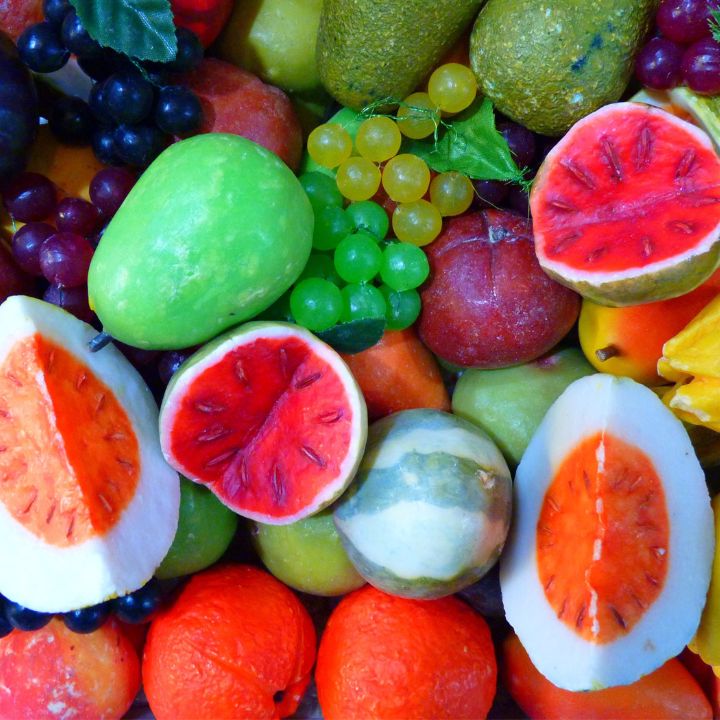Artificial flavors are synthetic substances used to mimic the taste and aroma of natural flavors. They are widely used in the food industry to enhance the flavor of processed foods and to create new and unique flavor combinations. In this article, we will discuss what artificial flavors are, how they are made, their benefits and drawbacks, and their impact on health.




What are Artificial Flavors?
Artificial flavors are synthetic substances that are designed to mimic the taste and aroma of natural flavors. They are made up of various chemicals and are created in a laboratory setting. Artificial flavors are used in a wide range of processed foods, including snacks, beverages, and ready-to-eat meals. They are often used to enhance the flavor of food and to create new and unique flavor combinations.
How are Artificial Flavors Made?
Artificial flavors are made up of a mixture of chemicals that are combined to create a specific flavor profile. These chemicals are usually derived from petroleum, coal tar, or other natural sources. They are then blended together in a laboratory setting to create a flavor that closely resembles a natural flavor.
Artificial flavors are created using a variety of methods, including chemical synthesis, fermentation, and extraction. Chemical synthesis involves combining individual chemicals to create a specific flavor profile, while fermentation involves using microorganisms to create a natural flavor. Extraction involves isolating specific compounds from natural sources, such as fruits or herbs, to create a specific flavor.
Benefits of Artificial Flavors
Artificial flavors have both benefits and drawbacks. Some of the benefits of artificial flavors include:
Consistency
Artificial flavors can help ensure that the flavor of a product remains consistent from batch to batch. This is important for processed foods that are produced in large quantities.
Versatility
Artificial flavors can be used to create a wide range of flavors, including those that are difficult to obtain naturally.
Cost
Artificial flavors are generally less expensive than natural flavors, making them a cost-effective option for the food industry.
Drawbacks of Artificial Flavors
Health Concerns
Some artificial flavors have been linked to health concerns, such as allergies, asthma, and even cancer. This is particularly true for certain synthetic flavors that are derived from petroleum or coal tar.
Lack of Nutrition
Artificial flavors do not provide any nutritional value and are often used in processed foods that are high in calories, sugar, and fat.
Taste
Some people may find that artificial flavors have an unpleasant taste or aftertaste. This can be particularly true for people who are used to natural flavors.
Impact of Artificial Flavors on Health
The impact of artificial flavors on health is a topic of ongoing debate. Some studies have suggested that certain synthetic flavors, such as those derived from petroleum or coal tar, may be harmful to health. For example, a study published in the International Journal of Environmental Research and Public Health found that exposure to synthetic flavors could increase the risk of developing asthma and other respiratory conditions.
Other studies have suggested that artificial flavors may be safe when consumed in moderation. The US Food and Drug Administration (FDA) regulates the use of artificial flavors and has deemed many of them to be safe for human consumption. However, the long-term effects of consuming artificial flavors are not fully understood, and more research is needed to determine their impact on health.
How to Avoid Artificial Flavors
If you are concerned about the potential health risks associated with artificial flavors, there are several steps you can take to avoid them.
Choose Whole Foods
Whole foods, such as fruits, vegetables, and whole grains, are naturally flavored and do not contain artificial flavors.
Read Labels
When purchasing processed foods, read the labels carefully to see if they contain artificial flavors.
Cook From Scratch
Cooking from scratch allows you to control the ingredients in your food and avoid artificial flavors. By making your own sauces, dressings, and marinades, for example, you can use natural ingredients to flavor your food.
Use Natural Flavoring
As mentioned in the previous answer, natural flavorings, such as herbs, spices, and citrus, can be used to flavor food without relying on artificial flavors. Experiment with different herbs and spices to find flavor combinations that you enjoy.
Choose Products with Natural Flavors
Some food products may contain natural flavors instead of artificial flavors. Look for products that are labeled as containing natural flavors or that use real ingredients to add flavor, such as real fruit juice or extracts.
Avoid Highly Proceed Food
Highly processed foods, such as snack foods, frozen dinners, and fast food, are more likely to contain artificial flavors. By limiting your intake of these foods, you can reduce your exposure to artificial flavors.
Avoiding artificial flavors requires some effort and mindfulness, but it is possible. By reading ingredient labels, choosing whole foods, cooking from scratch, using natural flavorings, choosing products with natural flavors, and avoiding highly processed foods, you can reduce your intake of artificial flavors and enjoy the flavors of natural, whole foods.

